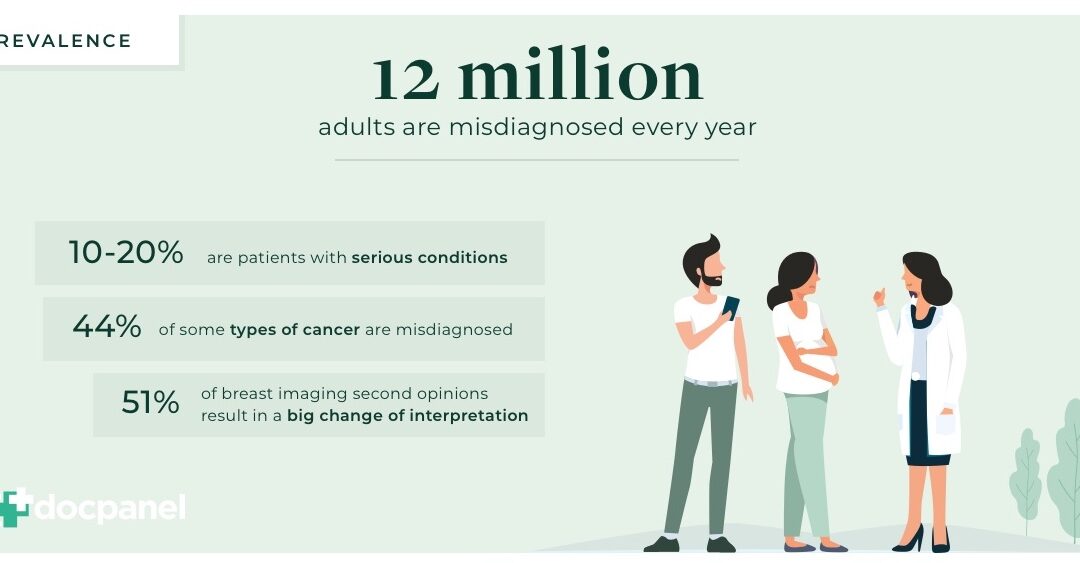The medical field has made incredible strides in diagnosing and treating various diseases, including cancer. However, even with advanced technology and skilled healthcare professionals, misdiagnosis remains a significant concern, particularly when it comes to cancer. Misdiagnosis of cancer jeopardizes a patient’s health and may also raises serious questions about medical malpractice. This blog delves into the complexities surrounding misdiagnosis of cancer as a medical malpractice case.
Understanding Cancer Misdiagnosis
Cancer misdiagnosis occurs when a medical professional fails to accurately identify the presence of cancer or misclassifies it as a different condition. This can lead to delayed or incorrect treatment, resulting in the disease progressing to advanced stages. Misdiagnosis can happen due to various reasons, including:
- Similar Symptoms: Some cancers share symptoms with other non-cancerous conditions, making it challenging to distinguish between them. For example, symptoms like fatigue, weight loss, and pain can be attributed to a range of illnesses.
- Diagnostic Testing Errors: False positives or negatives in diagnostic tests such as biopsies, imaging scans, and blood tests can contribute to misdiagnosis. Interpreting these tests incorrectly can lead to wrong conclusions.
- Communication Breakdown: Inadequate communication between healthcare professionals, such as not sharing complete patient history or test results, can impede accurate diagnosis.
- Lack of Experience: Inexperienced medical practitioners might struggle to recognize subtle signs of cancer or might not be familiar with the latest diagnostic techniques.
Medical Malpractice and Cancer Misdiagnosis
Medical malpractice refers to the negligence or misconduct by a healthcare professional that deviates from the accepted medical standard of care, leading to harm or injury to the patient. In the context of cancer misdiagnosis, for a case to be considered medical malpractice, the following elements must generally be proven:
- Doctor-Patient Relationship: It must be established that a doctor-patient relationship existed in order for the doctor to owe the patient a duty of care.
- Breach of Duty: It must be demonstrated that the medical professional breached their duty of care by failing to provide the standard of care that a reasonable and similarly trained professional would have provided under similar circumstances, i.e., the standard of care was breached.
- Causation: It must be proven that the misdiagnosis directly caused harm to the patient. This can be complex, as the plaintiff needs to demonstrate that the patient’s outcome would have been different with timely and accurate diagnosis. I am studying a potential case now that will turn on this issue.
- Damages: The patient must have suffered measurable damages as a result of the misdiagnosis. These damages can include physical harm, emotional distress, increased medical costs, and loss of earnings.
Challenges in Cancer Misdiagnosis Cases
Proving medical malpractice in cases of cancer misdiagnosis can be intricate due to several challenges:
- Medical Judgment Defense: Healthcare professionals may argue that cancer diagnosis involves a certain level of medical judgment, and errors can occur even if they followed the appropriate protocols.
- Causation Complexity: Demonstrating that the delayed diagnosis directly led to worsened outcomes can be challenging, especially if the cancer was already at an advanced stage.
Conclusion
Misdiagnosis of cancer is a deeply concerning issue that can have life-altering consequences for patients. When considering misdiagnosis as a medical malpractice case, it’s essential to recognize the challenges and complexities involved. While some instances of misdiagnosis may indeed be due to medical negligence, proving it legally requires a careful assessment of factors such as standard of care, causation, and damages. As medical technology continues to advance, reducing misdiagnosis rates should remain a priority to ensure timely and accurate treatment for all patients.
Lloyd Gathings
205-322-1201

